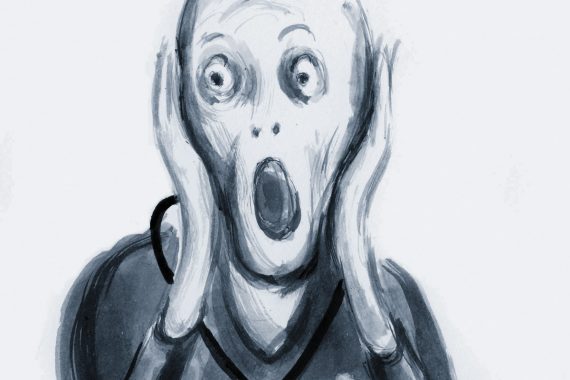Consultants should face-to-face up to post-Covid consulting

Copperfield on secondary care’s reluctance on returning to face-to-face consultations post-pandemic
I have some breaking news for consultants and their teams. Covid is over! Covid is so over, in fact, that it almost has a cosy nostalgic glow for those of us reminiscing about all those telephone, fly-by-the-seat-of-your-pants consultations we so didn’t enjoy.
Yet, somehow, secondary care doesn’t seem to have got the memo. They’re like those Japanese soldiers who kept fighting WW2 oblivious to the fact the war had ended. Still fighting in the sense that they obstinately stick to an arm’s length/hands-off/eyes-shut approach to consulting by managing just about everything by telephone.
In fact, it seems they’ll do anything to avoid an actual F2F. Assuming our referral gets through – which in itself is a remote possibility – then if it’s not a telephone consultation, it’s an unsolicited A&G or a straight-to-test then discharge.
What is going on? Are consultants socially phobic? Have they forgotten how to examine patients? Are they assuming that because children should be seen and not heard, the reverse applies to adults?
Or is this just an administrative waiting-target ruse, achieving a higher throughput – or, even better, the ‘ring once while they’re on the loo then mark as DNA/discharged’ ploy?
Whatever. I feel morally obliged to warn patients about the not-remotely-interested attitude of secondary care at point of referral. Hence, ‘I’m getting you to see a consultant’, ‘I’m sending you for an appointment’ and ‘I’m arranging a referral’ become, respectively: ‘I’m getting you to hear a consultant’, ‘I’m sending you for a disappointment’ and, in view of the likely outcome, ‘I’m arranging a deferral’. The truth must be told.
This untouched-by-human-consultant approach so devalues the actual and perceived benefit of a referral that the patient inevitably loops back to us to offload their frustration and dissatisfaction. Which is particularly galling given how the media slaughtered us GPs when we were forced to consult remotely yet don’t bat an eyelid over consultants who continue to choose to do so.
So fess up, secondary care. Tell me why you’re still stuck on remote. And tell me to my face.
Dr Tony Copperfield is a GP in Essex.
Related Articles
READERS' COMMENTS [9]
Please note, only GPs are permitted to add comments to articles













In case you have not noticed Tony, the Pandemic is far from over yet.
There are still patients and medical coleagues dying from acute covid and disabled by chronic effects, both long-covid and increased rates of diabetes, heart disease, renal failure, immune deficiency, sleep disturbances and dementia.
We do not yet have a vaccine that prevents infection and consequences – in fact we still only have one that introduces more of the harmful ‘spike-protein’ into the body!
Give the dears a break, Copperfield. When their heads are so far up their own ar*es, face-to-face would be a physical impossibility….😐
many in 2′ care have forgotten GIRFT and whether by design or accident are letting patients and the UK tax payer down by this type of behaviour
A patient told me that the other day, after a blue moon, he found some hen’s teeth and saw a squadron of pigs flying over a snowball basking in hell — but he still hasn’t seen his consultant F2F…
😂🤣
This also feeds into the dump of primary care work. In the old days if a patient was seen face to face and the patient needed a blood test the OPD Dr wrote out the form and the patient walked around to the hospital phlebotomy department and had it done. Now because the patient is not at the hospital understandably the generated letter asks us to do them. An audit of hospital performed blood test numbers in OPD pre and post Covid would be really interesting and perhaps a way of shifting money
So this consultant walks backwards into a bar, pulls out his mobile phone, rings the barman and orders a whisky shot.
“Turn round and order normally,” says the barman.
“Sorry,” says the consultant, “but I don’t do face-to-face.”
BTW just finished reading “The Puzzling Case of the Missing Consultants” by Avi Nalarf and Sandy Wedge, printed by The Golfing Press. So, mystery solved…
My best yet was a while back when the cardiologist did a phone consult for an arrythmia and wrote back to ask the surgery to rig the patient up to an ECG machine, perform carotid massage and see of we could provoke and capture the arrhythmia. They sadly had been unable to do this because the consult was by phone; almost comedic no? I love a doctor induced cardiac collapse consultation at the suggestion of the cardiologist who can’t be bothered to see the patient